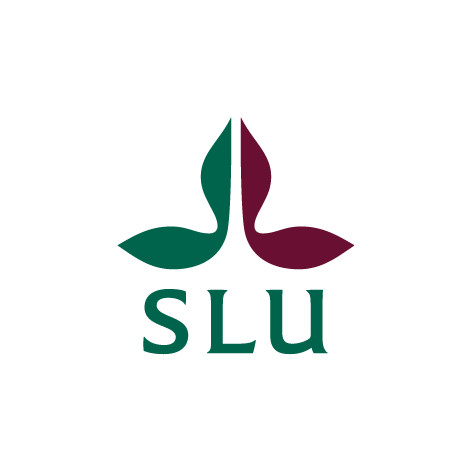L'Institut Agro

Institut Agro (IA) is a national institute of higher education in agriculture, food and the environment, created on 1st January 2022 by bringing together three academic institutions operating in higher education and research in agriculture and related fieds: Montpellier SupAgro, Agrocampus Ouest and AgroSup Dijon. This public institution aims to help the stakeholders of the agricultural and food to better challenge agro-ecological, food, digital and climatic transitions thanks to its contributions in terms of training, research, innovation and support for agricultural technical education.
It brings together 1,300 staff and 4,900 students from the final year of Bachelor's, Master's and PhD programs (450 fellows). As a public institution, IA pursues an active policy of inclusion and allows all qualified students who pass the entrance exam to access state-funded training. 36% of the Institute's students receive a a government grant based on social criteria. IA is closely linked to the National Research Institute for Agriculture, Food and the Environment (INRAe) to organize and conduct its research activities within the 3 regional sites of French higher education (Montpellier, Rennes-Angers and Dijon). In turn, INRAe researchers are also involved in the training curricula of those centers.
Within the Agro Institute, the Vine and Wine, Sciences et Education division (Pôle Vigne et Vin), which brings together the skills of the various internal schools in terms of teaching and research on the subject of vine and wine sciences, is responsible for the application.
The Agro Institute is widely open to international students and offers several courses in English. 29% of its students are foreign. It actively works to open up its students internationally through the courses it offers, internships and academic mobility with high-level foreign partners in Europe, America and Asia.
The Institute's "Employment and Training" Department is responsible for monitoring the professional integration of students.
The continuous updating of courses and the integration of the results of research carried out on the campuses by the teacher-researchers, the close link with the network of professionals on a national scale, in particular through the coordination of several “Chair d’entreprises”, allow for the high employability of our students: 98% of insertion 12 months after the degree validation according to the latest survey of the ministry in charge
SLU (Swedish University of Agricultural Sciences)

The Swedish University of Agricultural Sciences (SLU) is a university with a clearly defined role in society: to take responsibility for the development of learning and expertise in areas concerning biological resources and biological production. This responsibility stretches over the wide-ranging fields of agriculture, forestry and food industry to environmental questions, veterinary medicine and biotechnology. A comprehensive viewpoint, interdisciplinary approach and applicability are keywords in SLU’s research and teaching and in the contacts with industry and society. University activities are organized in 31 departments at four faculties: Landscape Architecture, Horticulture and Crop Production Science; Natural Resources and Agricultural Sciences; Veterinary Medicine and Animal Science; and Forest Sciences. Main campuses are located at Alnarp, Skara, Ultuna and Umeå. Research and teaching activities are carried out throughout the country.
SLU was established in 1977 and has today 4400 full-time students, around 530 PhD-students and 3200 full-time employees, of which 225 are professors. SLU is ranked as number three in the QS World University Rankings for Agriculture & Forestry 2022. Furthermore, regardless of subject, SLU is consistently ranked among the world’s top 400 universities and 50 best young universities.
In Sweden, SLU has a unique role as the only university committed to the agricultural and forestry sectors. SLU activities are characterized by a strong link between education and research of high international standards and close collaboration with industry and sectors concerned. SLU’s role is integrated with developments within agriculture and forestry sectors, food industry, veterinary medicine, natural resources and the environment, as well as within rural and urban development and landscape architecture. SLU offers unique possibilities for research and education through a network of experimental farms and field station spread throughout Sweden, as well as access to the latest digital and technological infrastructure available, including a new research vessel and the only university animal hospital in Sweden.
SLU´s strategy identifies six profile areas:
- Innovative use of genetic resources and biotechnology.
- Improving animal health and welfare.
- Novel solutions for combating negative effects of climate change.
- New production systems for the sustainable management of natural resources.
- Increasing quality in the food chain.
- Sustainable development in urban and rural environments
Weincampus Neustadt

With roughly 4,600 students, 85 professors and about 160 lecturers Ludwigshafen University of Business and Society (LUBS) is a university of applied sciences integrated in the diverse, higher education landscape of the Rhine-Neckar metropolitan region. Standing out for its practical orientation, strength in research as well as its close regional and international links with institutions, partner universities, social organizations and companies, it offers students an excellent springboard for their professional development.
LUBS provides a broad range of Bachelor’s and Master´s degree programs with over 45 degree programs covering a range of study options including full-time, part-time (work-study and dual programs) as well as distance learning. Since 2009 LUBS is the leading university of the Weincampus Neustadt, a cooperation the University of Applied Sciences Bingen, the University of Applied Sciences Kaiserslautern and the Dienstleistungszentrum Ländlicher Raum Rheinpfalz (DLR, “Rural Service Center Rheinpfalz”) that provides Bachelor’s and Master´s degree programs in viticulture and enology for about 200 students. Doctoral students at the Weincampus are part of the Graduate School, and within this framework, academic seminars are held and regular reporting by graduate students is completed.
At the Weincampus Neustadt, 7 professors from these universities of applied sciences teach and conduct research together with scientists from the DLR Rheinpfalz on various subjects of vine and wine sciences including climatic adaptation and sustainability. The expertise of these three academic institutions combined with the industry know-how and infrastructure of the DLR Rheinpfalz facilitates the seamless transfer of knowledge between academia and industry, and vice versa. The Weincampus Neustadt has partnerships with more than 600 wineries around the world and provides dualstudy courses resulting in high employability of our students.
As a public institution, the LUBS pursues an active policy of inclusion. Small groups and specially trained lecturers ensure direct contact between teachers and students and promote the efficient teaching and learning of the required knowledge, methodologies and social skills. LUBS provide students with individualized support and attention. Instruction in small groups and close contact with professors results in a personalized, pleasant learning environment. A number of our departments offer mentorship programs in which students work closely with a professor who serves as their mentor during the entire degree program. Opportunities for individual reflection and discussion as well as guidance from our close-knit support network help students learn more effectively. Thanks to these measures, students will be able to complete their studies—as do a large majority of the students—within the standard period of study.
Universidad de Chile

The University of Chile was founded on the 19th of November, 1842. It is the oldest higher education institution in Chile. Generating, developing, integrating and communicating knowledge in all the areas of knowledge and culture are the mission and basis of the activities of the University. This makes up the involvedness of their work and directs the education they impart.
The University is located in the capital city Santiago de Chile and it is a public university with international quality. All the areas of knowledge are elaborated in their lecture halls and today the university is at the top of the Chilean university system with regard to teaching, research, creation and outreach.
- Faculties and Institutes: Distributed in five campuses and several experimental stations in Santiago and other Regions of Chile:
- 16 Faculties: Architecture and Urbanism, Arts, Agricultural Sciences, Chemical Sciences and Pharmacy, Communications and Image, Dentistry, Economy and Business, Forestry Sciences, Government, Law, Medicine, Philosophy and Humanities, Physical and Mathematical Sciences, Sciences, Social Sciences and Veterinary and Animal Sciences.
- 3 Interdisciplinary Institutes: Advanced Studies in Education, International Studies and Nutrition and Food Technology.
- The University of Chile has 46.937 students (2021):
- 36.633 undergraduate students
- 8.114 graduate students



